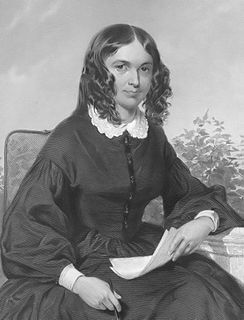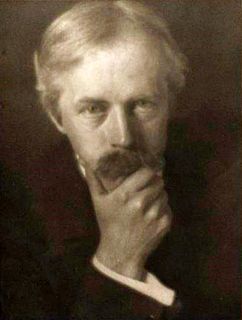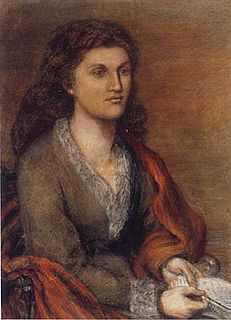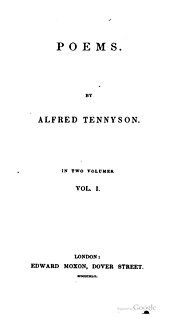Related Research Articles

Elizabeth Barrett Browning was an English poet of the Victorian era, popular in Britain and the United States during her lifetime.

Robert Browning was an English poet and playwright whose dramatic monologues put him high among the Victorian poets. He was noted for irony, characterization, dark humour, social commentary, historical settings and challenging vocabulary and syntax.

Alfred Louis Charles de Musset-Pathay was a French dramatist, poet, and novelist. Along with his poetry, he is known for writing the autobiographical novel La Confession d'un enfant du siècle.

Arthur William Symons was a British poet, critic and magazine editor.
Confessional poetry or "Confessionalism" is a style of poetry that emerged in the United States during the late 1950s and early 1960s. It is sometimes classified as a form of Postmodernism. It has been described as poetry of the personal or "I", focusing on extreme moments of individual experience, the psyche, and personal trauma, including previously and occasionally still taboo matters such as mental illness, sexuality, and suicide, often set in relation to broader social themes.

Ernest Christopher Dowson was an English poet, novelist, and short-story writer who is often associated with the Decadent movement.

Arthur William Edgar O'Shaughnessy was a British poet and herpetologist. Of Irish descent, he was born in London. He is most remembered for his poem "Ode", from his 1874 collection Music and Moonlight, which begins with the words "We are the music makers, / And we are the dreamers of dreams", and has been set to music by several composers including Edward Elgar, Zoltán Kodály, Alfred Reed and, more recently, Aphex Twin.

Mary Elizabeth Coleridge was a British novelist and poet who also wrote essays and reviews. She wrote poetry under the pseudonym Anodos. Other influences on her were Richard Watson Dixon and Christina Rossetti. Robert Bridges, the Poet Laureate, described her poems as 'wonderously beautiful… but mystical rather and enigmatic'.

Mathilde Blind, was a German-born English poet, fiction writer, biographer, essayist and critic. In the early 1870s she emerged as a pioneering female aesthete in a mostly male community of artists and writers. By the late 1880s she had become prominent among New Woman writers such as Vernon Lee, Amy Levy, Mona Caird, Olive Schreiner, Rosamund Marriott Watson, and Katharine Tynan. She was praised by Algernon Charles Swinburne, William Michael Rossetti, Amy Levy, Edith Nesbit, Arthur Symons and Arnold Bennett. Her much-discussed poem The Ascent of Man presents a distinctly feminist response to the Darwinian theory of evolution.
Nationality words link to articles with information on the nation's poetry or literature.
Nationality words link to articles with information on the nation's poetry or literature.

— Opening lines of Rudyard Kipling's White Man's Burden, first published this year
Nationality words link to articles with information on the nation's poetry or literature.

Robert Chester is the mysterious author of the poem Love's Martyr which was published in 1601 as the main poem in a collection which also included much shorter poems by William Shakespeare, Ben Jonson, George Chapman and John Marston, along with the anonymous "Vatum Chorus" and "Ignoto".

Red Cotton Night-Cap Country, or Turf and Towers (1873) is a poem in blank verse by Robert Browning. It tells a story of sexual intrigue, religious obsession and violent death in contemporary Paris and Normandy, closely based on the true story of the death, supposedly by suicide, of the jewellery heir Antoine Mellerio. Red Cotton Night-Cap Country has never been one of Browning's more popular poems, originally because of the perceived sordidness of the story, and later on grounds thus summarised by the critic C. H. Herford:
The poet followed on the heels of the journalist, and borrowed, it must be owned, not a little of his methods. If any poem of Browning's may be compared to versified special correspondence, it is this. He tells the story, in his own person, in blank verse of admirable ease and fluency, from which every pretence of poetry is usually remote.

Isa or Isabella Jane Blagden was an English-language novelist, speaker, and poet born in the East Indies or India, who spent much of her life among the English community in Florence. She was notably friendly with the Browning, Bulwer-Lytton and Trollope families.

Poems, by Alfred Tennyson, was a two-volume 1842 collection in which new poems and reworked older ones were printed in separate volumes. It includes some of Tennyson's finest and best-loved poems, such as Mariana, The Lady of Shalott, The Palace of Art, The Lotos Eaters, Ulysses, Locksley Hall, The Two Voices, Sir Galahad, and Break, Break, Break. It helped to establish his reputation as one of the greatest poets of his time.
Colombe's Birthday is a play written by Robert Browning. In 1843, he was approached by William Macready's rival Charles Kean to write a play for him. Browning took up the offer and finished the play in 1844. In March of that year, he read the finished play to Kean and his wife, Ellen Tree, and it was accepted for production. However, they could not promise its performance until 1845 and forced Browning not to publish it until then. Despite this request, the play was published five weeks later as the next number of his Bells and Pomegranates series. The play was finally produced in 1853 through the influence of Helen Faucit, who starred in the first production as the title character.
The Kraken is a sonnet by Alfred Tennyson (1809-1892) that describes the Kraken, a mythical creature. It was published in Tennyson's Poems, Chiefly Lyrical (1830).

The Truth About Blayds is a three-act comedy by A. A. Milne, first performed in London in December 1921. It depicts the turmoil into which the family of a revered poet, Oliver Blayds, is plunged when it emerges immediately after his death that the poetry for which he is famous was in fact written by a friend who died young, leaving numerous poems which Blayds passed off over the years as his own work.
References
- ↑ Symons, Arthur (1906). An Introduction to the Study of Browning. London: J. M. Dent. pp. 33-36.
- ↑ Armstrong, Isobel (1974). Writers and their Background: Robert Browning. London: G. Bell & Sons. pp. 47–49.